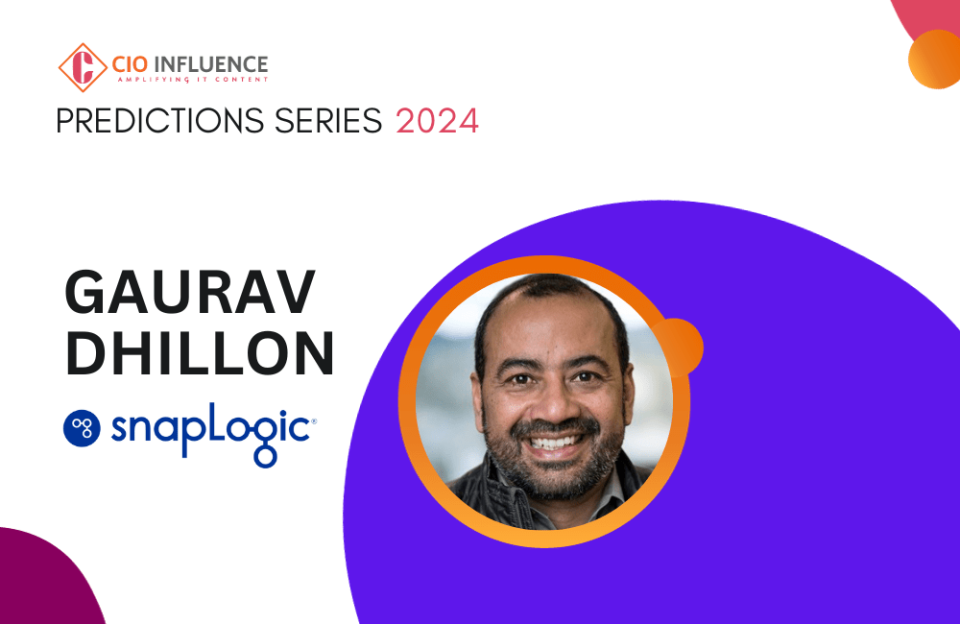AI seems to be all anyone can talk about, and each new development is rapidly changing the way we work. For some people, their ‘fears’ surrounding AI have become a reality: A recent report found that AI replaced nearly 4,000 jobs earlier this year. And we can expect to see more jobs become obsolete as technology continues to develop. On the other side of the coin, however, the proliferation of AI will also create new jobs—a staggering 97 million of them according to the World Economic Forum. AI is now empowering individuals to be more productive and do better work, resulting in improved business outcomes. Most of us are familiar with the adage of the tractor and the farmer: The advent of the tractor didn’t replace the farmer, just like the calculator didn’t replace the mathematician.
AI is now empowering individuals to be more productive and do better work, resulting in improved business outcomes. Most of us are familiar with the adage of the tractor and the farmer: The advent of the tractor didn’t replace the farmer, just like the calculator didn’t replace the mathematician.
With that in mind, AI won’t replace humans either. It will just help us complete basic tasks faster, cheaper, and easier than ever before—which is what we’ve been using other technologies for since time immemorial.
Cybercrime Busters: Top 5 Cybersecurity Insights for Enterprise Storage
I’m hopeful that the net result of AI in career upskilling will be overwhelmingly positive. But for that to happen humans need to learn how to work with the technology more effectively—and fast! AI may not be coming for your job, but there are a few things people must take into account as it increasingly impacts how we work.
Embrace Your Creativity and Human-Centered Thinking
At a recent industry event, one of our investors chatted with the aforementioned technologist Eric Schmidt. He shared that a friend of his who writes obituaries was wondering whether AI would eliminate his job. While generative AI is great for writing basic copy or serving as a jumping-off point for more complex texts, it struggles with context and can’t write with the nuance that makes human prose so unique and engaging. It can’t provide personal anecdotes, new ideas, or know how to do things like tactfully infuse humor into a eulogy, for instance.
Writing something as personal and meaningful as an obituary requires that distinct human touch—luckily, Eric’s friend’s job is safe for now.
Generative AI has, however, taken over basic writing tasks, making human attributes like wit, humor, and creativity more inimitable than ever. If you’re not able to write something better than a tool like ChatGPT, well, you may be in trouble.
CIO Influence Interview with Theresa Lanowitz, Head of Cybersecurity Evangelism at AT&T Business
Generative AI in careers will push us all to become more creative and hone in on those valuable assets and skills that only humans can bring to the table.
Perfect Your ‘Prompt Engineering Skills’ and Ask the Right Questions
The arrival of generative AI has launched us into a sort of second Socratic age. Greek philosopher Socrates notoriously emphasized the importance of asking questions, famously stating that, “the highest form of Human Excellence is to question oneself and others.” Well, the time has come for us to start asking AI questions, and to ask them in droves.
But to glean the most value from generative AI, we need to be asking it the right questions. Most of us have learned our whole lives by having concepts drilled into our heads (ah, the ills of the Prussian education system) rather than asking questions. Providing AI with the right prompts won’t come naturally to everyone at first.
Like anything else, it’s a learned skill.
The good news is, we’ve already been refining a similar skill for years: Googling.
Everyone knows the utility of Google hinges on including the right keywords in your search.
Now, humans must take this step further by crafting succinct prompts designed to generate the type of answers they’re looking for. Without solid prompts, tools like ChatGPT can go off on tangents spewing irrelevant information, or worse, hallucinate.
Understanding AI Has Quickly Become Table Stakes. Don’t Get Left Behind
If you can’t sit at someone’s dinner table and have a thoughtful, high-level conversation about AI, you’re going to get left behind. This applies to not only business leaders but any employee whose organization leverages this technology.
So how else will AI impact the world?
As with any developing tech, no one knows how the proliferation of AI will play out in the long run. Ex-Google CEO Eric Schmidt has made his trepidation known, stating: “My concern with AI is existential, and existential risk is defined as many, many, many people harmed or killed.”
Numerous other experts have expressed similar sentiments. These worries aren’t unfounded—time and time again humans have proven that we’re our own worst enemy.
But what we do know is that it created exciting new opportunities, amplified the need for genuine talent, and underscored the importance of the authentic, human voice. Everyone who works for companies leveraging this technology—from business leaders to entry-level employees—needs to work on harnessing their creativity and getting good at asking AI the right questions. Their jobs may depend on it.
SnapLogic is the leader in Generative Integration.
As a pioneer in AI-led integration, the SnapLogic Platform accelerates digital transformation across the enterprise and empowers everyone to integrate faster and easier.
Whether you are automating business processes, democratizing data, or delivering digital products and services, SnapLogic enables you to simplify your technology stack and take your enterprise further. Thousands of enterprises around the globe rely on SnapLogic to integrate, automate, and orchestrate the flow of data across their business.


